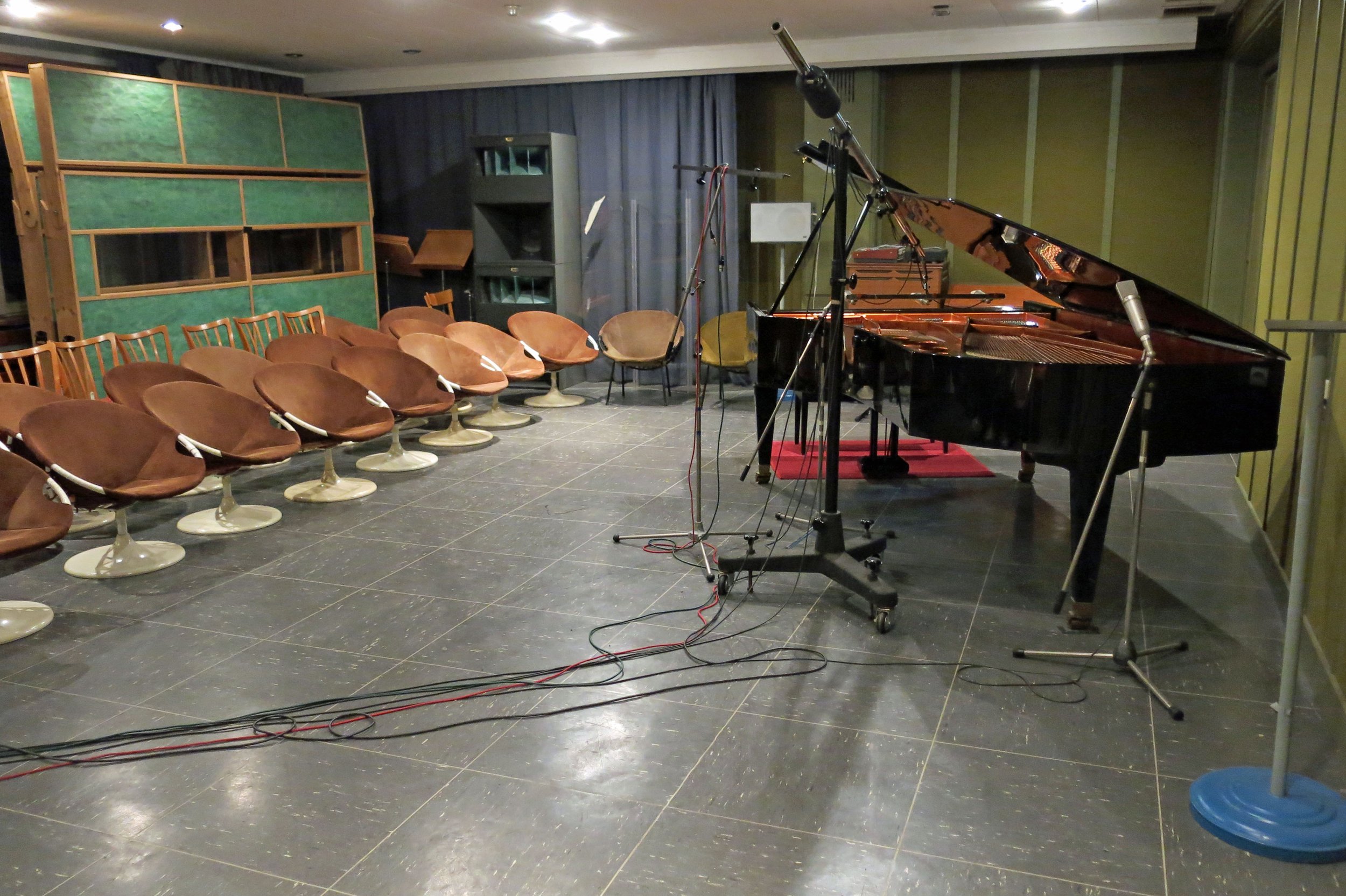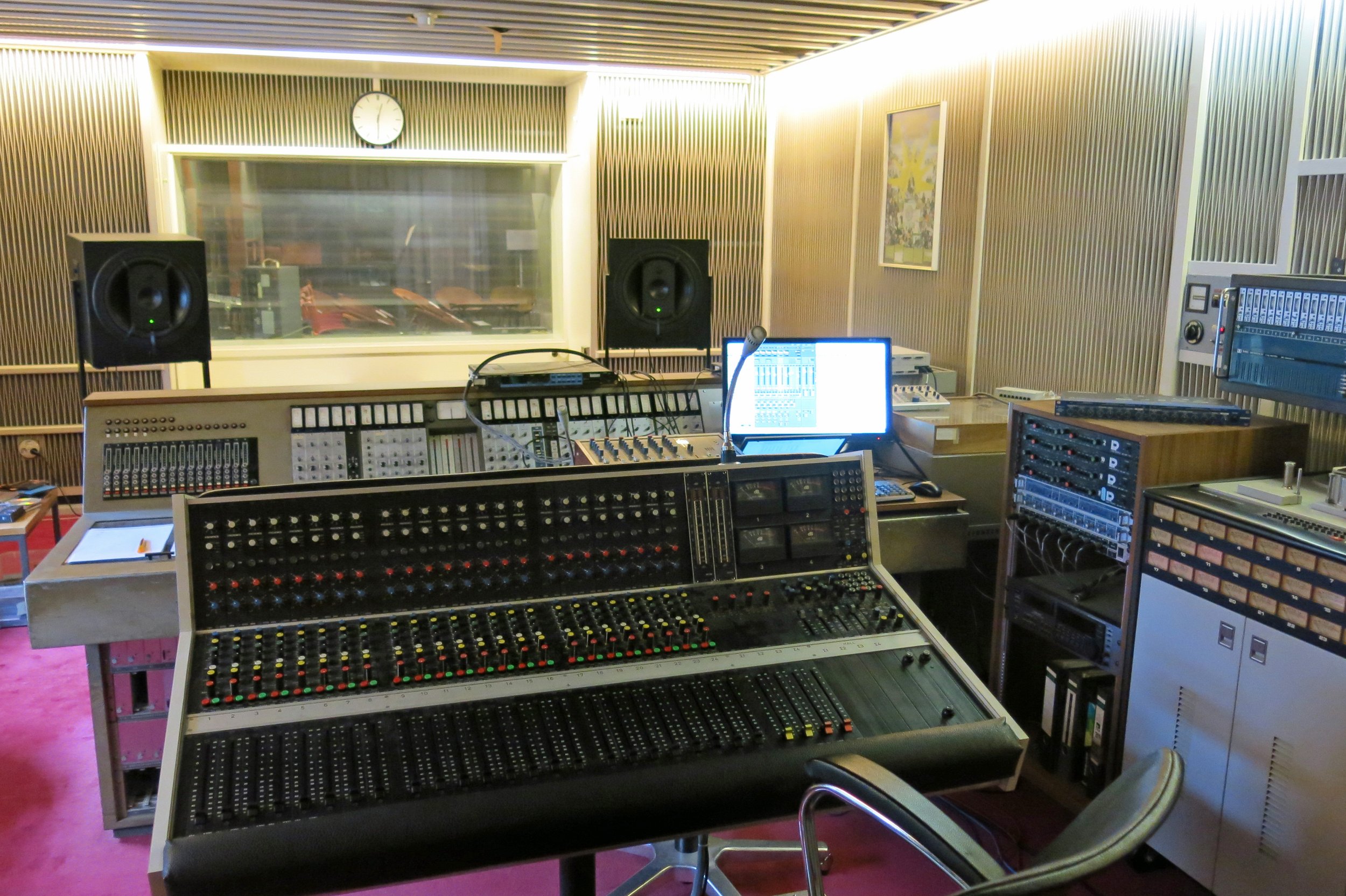Martin Vatter - Homeland
Publisher: Revox Horch House
Playing time: 65 min
Specifications: half track ¼", stereo, RTM SM900, CCIR, 510 nWb/m, 38 cm/s
Reel(s): 2 standard metal reels, with stickers
Packaging: 2 plastic archive boxes, with stickers, 1 cardboard slipcase
Inserts: 1 insert folder with 2 insert sheets and 5 photo prints
Homepage: https://www.horchhouse.com/ No longer available
Information: The production of the audio tape was taken over by Revox Horch House
Author: Claus Müller
Martin Vatter was born in 1963 in Etting, Bavaria. He grew up in a musical home, received classical piano lessons from the age of six and gave his first public solo performance at the age of nine. The album "The Köln Concert" by Keith Jarrett gave him a decisive musical inspiration in 1986. From 1992, Martin Vatter performed with jazz and new age formations and appeared as a solo pianist. Albums with his own compositions followed from 1994. During this time, he consistently developed his own style. His music was used in television programs and on the radio. From 2004, Martin Vatter received awards for audiophile recordings for several albums from the German music magazine "AUDIO".
The magnificent Bösendorfer "Imperial" concert grand piano is still in the MPS studio in Villingen, Swabia, where it has been played by Friedrich Gulda and Oskar Peterson and was reawakened under the hands of Martin Vatter in 2018. The way in which the pianist merges with his instrument and develops his pieces is very impressive. The following sentence can be read on his homepage: "Martin Vatter lets his soul flow together with that of his instrument. His whole personality translates directly into expressive, powerful, but equally sensitive and sensual playing. However broad the spectrum of his soul may be, the elements of his music are just as varied. Discover piano music that touches your soul."
The main theme of the 2018 recording "Homeland" is an exploration of the concept of home. The album was created before the coronavirus pandemic and before the heightened political turmoil we are currently experiencing worldwide. This makes this work particularly relevant in 2024. Martin Vatter's music is as wide-ranging and rich as the concept of home is multifaceted. It encourages an examination of this concept, of love for special places, of longing, of security, of happiness, of memory. It is about family, relatives, and friends and, in contrast, also about flight and displacement, about dealing with conflicts. Every person carries a universe of thoughts in their head and interprets the concept of home differently. During the following interview, I asked Martin Vatter to go into more detail about the individual songs.
Claus: In 1986, Keith Jarrett's album "The Köln Concert" gave you a decisive musical inspiration. What happened back then?
Martin: I grew up in a village with 320 inhabitants, primarily played classical music, but also boogie-woogie and took lessons from private teachers. From 1985 to 1987, I did my vocational baccalaureate in Munich. In 1986, someone brought Keith Jarrett's KÖLN CONCERT to a party. I was absolutely impressed and was infected by this way of playing the piano. This record is considered my source of inspiration and initial spark. It is still my most important album today. It was Keith Jarrett's inspiration that led me to develop my current musical style.
Claus: You write that your soul flows together with the instrument. Can you explain how this happens, what happens in these moments?
Martin: When I play, I forget everything around me and become one with the piano. Only with this absolute devotion does something of my message reach the listeners and I touch their hearts with my music. Johann-Wolfgang von Goethe aptly said: "It must come from the heart to have an effect on the heart."
Claus: The recording of "Homeland" took place in January 2018 in Hans-Georg Brunner-Schwer's legendary MPS studio. What does it feel like to play in this legendary studio on the Bösendorfer Imperial concert grand, on which pianists of distinction have played in the past?
Martin: I tried as best I could to put my knowledge of the studio and the historic recordings that took place there in the background. If you treat the legendary Bösendorfer Imperial like a shrine just because so many famous musicians have played on it, then you can't make a good recording.
Claus: Can you please tell us something about the individual tracks on the album?
Martin:
HOMELAND: A very calm and friendly piece, dedicated to everyone's home besides my own. It is intended to express a deep intimacy, closeness, and love.
LONG AGO: Conveys a deep connection and longing.
FORCED TO FLEE MY HOMELAND: An energetic piece that expresses the fate, humiliation and anger of being displaced and having to flee. The open ending is intended to remind us that the fate of those fleeing is uncertain. All the sounds were produced by plucking and muffling the piano strings. I have dedicated this piece to all refugees.
SATISFACTION IS THE WAY TO HAPPINESS: A cheerful piece that conveys harmony. It is intended to make everyone who is lucky enough to live in peace in their home country aware of gratitude and contentment.
SOULFUL MOMENTS: This harmonious and calm composition is intended to describe the magic of a soulful moment. It is important to recognize and enjoy these moments. This is not a question of money or origin.
MEET OLD FRIENDS: Describes the moments of happiness that everyone experiences when they visit their homeland again after a long time and meet old friends. Or meeting friends from your home country who are visiting you.
FAMILIAR FEELINGS: When you visit your beloved homeland after a long time or even just think of your homeland, intense feelings and memories are awakened. A very tender beginning, but at times also a very energetic and virtuoso piece.
EXITING: Sets to music the excitement and impatience of visiting his homeland or even thinking about it. This fresh and excited piece is therefore stimulating and energizing.
FORGOTTEN LOVE: A heartfelt appeal for more love in the world. Although the "forgotten love" in the world is lamented in melancholy parts of the piece, the energetic and vigorous middle section of the piece wants to rebel against this and campaign for more love. More love would be the key to a peaceful future and to more mutual respect between people, but also to respect for creation and our planet.
SO MANY MOODS: The stylistic and musical change of mood is intended to illustrate the torn nature of feelings and opinions. Modern, almost jazzy piano playing alternates with classical elements.
YOUR TEARS WILL DRY: The most classical composition on the album: romantic, compassionate, but also hopeful. I have dedicated this composition to all refugees who have been forced to flee their homes for various reasons. The piece is intended to give hope and comfort to all people who have had to leave their homes and do not know what to do next. The topic of migration was already very topical worldwide at the time of the recording. Due to the war in Ukraine and the Middle East war, this topic, like the whole album "Homeland", has become even more important. In the broadest sense, all armed conflicts are always about homeland and the associated claims to ownership and territory.
HAPPINESS: Despite all the almost insurmountable problems and conflicts, this piece is intended to convey happiness and confidence to people to recharge their batteries and overcome problems. What would life be without confidence and happiness?
Claus: You are a musician who is concerned about recording quality. How did you come to this realization? Has it changed the way you work when recording?
Martin: When I recorded my maxi CD "TRY A NEW WAY" with the Munich pianist Christian Willisohn in 2004, he recommended that I have the CD mastered at Pauler Acoustics and then send it to AUDIO magazine for review. Up to that point, I knew little about the existence of the audiophile scene. So, I looked on the Internet to see who was editor-in-chief at AUDIO. At the time it was Joachim Pfeiffer. I sent him my maxi CD (playing time 23 minutes). It was voted "Audiophile CD of the Month". Because I now wanted to listen to audiophile music at home, I bought a very high-quality CD player and STAX headphones. That was my foundation. I experienced what audiophile listening means. Since then, I have become more and more involved in the audiophile scene. As I listened even more consciously from then on, my recordings and productions also became increasingly high-quality. Since then, I've been going more and more in the direction of perfect sound in my recordings.
Claus: You also listen to music from tape. How does this passion affect your work as a pianist?
Martin: Ever since I got to know tape, a curtain went up for me in terms of listening. The warm and musical sound and the stunning dynamics really blew me away. This is a clear "more" compared to vinyl, even though MC cartridges, phono amplifiers, tonearms and turntables have been perfected more and more in recent years. Compared to vinyl records, tape does away with the complicated production techniques (copper or lacquer cutting, electroplating, reversal processes and pressing). For me, listening to tape is pure pleasure! Tape brings you closer to reality than any other medium. When you listen to tape, there is simply more soul in it and you literally bathe in the sound.
Claus: You emphasize that analog recording is very important to you. What does analog, and in this context tape, mean to you, perhaps in comparison to digital?
Martin: When I listened to the tape recording on the Telefunken M15 in the MPS studio, I was irritated at first because it sounded so warm. After listening to it for a short time, I didn't want to stop. The digital recording seemed sharp and crystalline in comparison.
Claus: Can we expect more exciting music projects soon? Is another analog recording planned?
Martin: I'm planning another recording for this year. Analog, of course!
Claus: Thank you very much for the interview.
Conclusion: Audiophile listeners and lovers of analog technology will get their money's worth with this album. The excellent recording impresses with its clarity and purity, but also with the full and deep sound of the Bösendorfer grand piano. Thanks to the close miking, it is documented how beautifully the grand piano decays and how it handles the spectrum of string tones. Martin Vatter uses the entire frequency range of the piano. The people involved worked with great attention to detail. Martin Vatter manages to take me on his musical journey. Listening becomes a feast for the senses.
Translated from German with DeepL.com (free version)
Music:
Sound:
The entire content and the individual elements of the web page are the intellectual property of Claus Müller and are subject to copyright protection. They may not be copied or imitated in whole or in part by the user; this applies to texts, logos and image components. Any modification, duplication, distribution or reproduction of the website or parts thereof, in any form whatsoever, is not permitted without the prior written consent of Claus Müller.
Der gesamte Inhalt und die einzelnen Elemente dieser Webseite sind geistiges Eigentum von Claus Müller und unterliegen dem Schutz des Urheberrechts. Sie dürfen vom Nutzer weder kopiert noch im Ganzen oder in Teilen imitiert werden; dies gilt insbesondere für Texte, Logos und Bildbestandteile. Jegliche Veränderung, Vervielfältigung, Verbreitung oder Wiedergabe der Webseite sowie Teilen hiervon, gleich welcher Art, ist ohne vorherige schriftliche Zustimmung von Claus Müller nicht zulässig.









